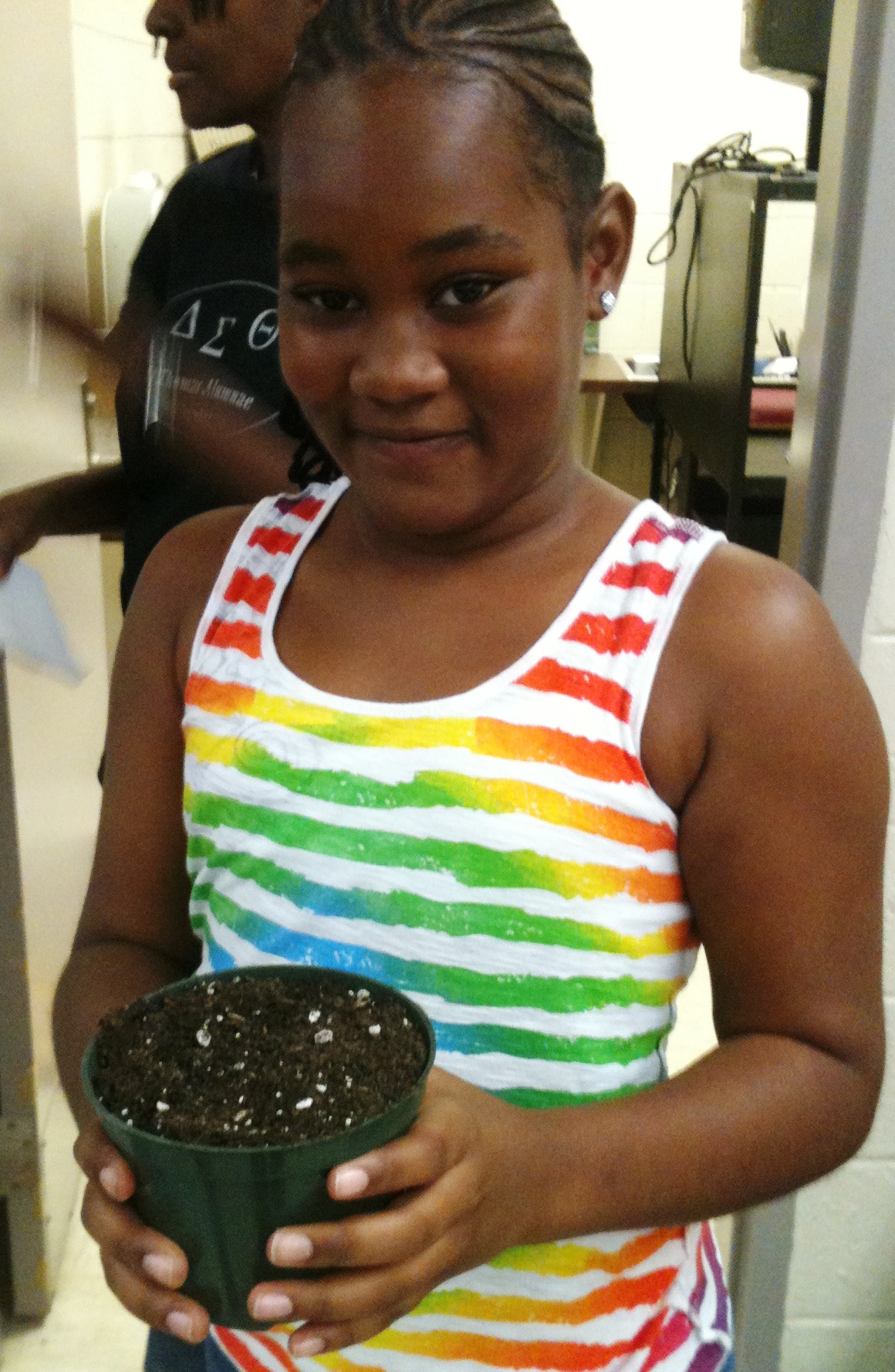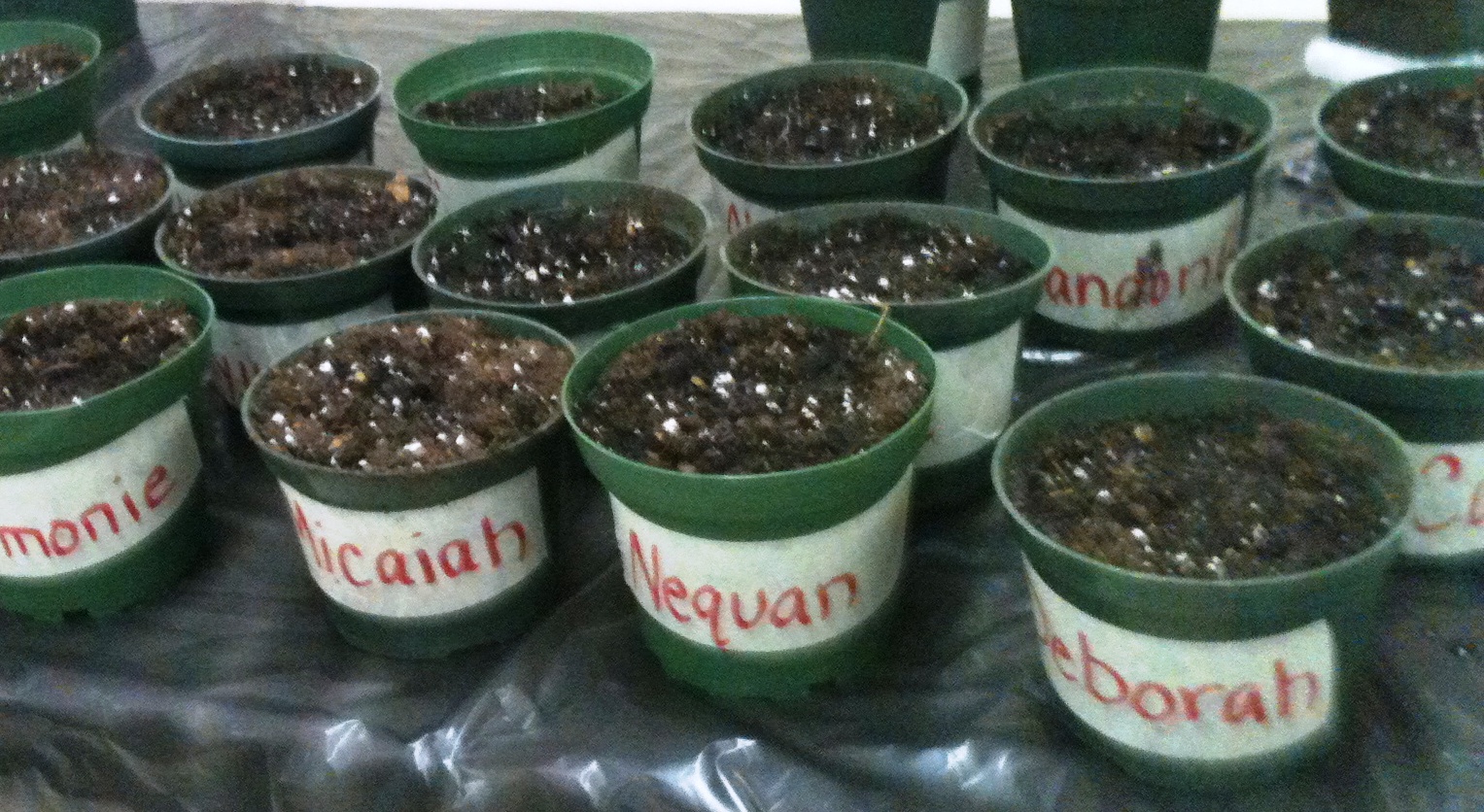
He recalls spending most of his free time as a kid in the bush, playing and picking fruit. These days he says, kids spend their time inside, watching TV or on the computer.
George says it’s a phenomenon that psychologist Richard Louv, author of “Last Child in the Woods,” describes as nature deficit disorder.
“It’s a joy to see kids planting and growing,” says George “people think that interest is not there, but it is. “
Shanna James, advocate of local, sustainably grown food and co-owner of Barefoot Buddha, says integrating sustainable agriculture into the education system can be deeply empowering. “Food is power,” James says.
Agriculture education not only by provides young people with the practical skill of being able to feed themselves regardless of economic situations, but also provides other benefits which range from nutritional to emotional, she says.
“Because we are of nature there is a healthy connection that our kids are missing,” James says.
People living in a regional, small-scale agrarian community are not only more connected with the land, but more connected with each other, she says.
With such a high dependency on imported food in the Virgin Islands, food security is often on the minds of those involved with youth and agriculture, as we saw in Tuesday’s article about programs at Ulla Muller, Gladys Abraham, and Antilles School.
The Environmental Rangers focus more heavily on the environmental preservation aspect of sustainable agriculture, and the emotional impact that having a connection with nature can have on students.
Anna Francis, a teacher at Cancryn and leader of The Environmental Rangers, an extra-curricular environmental protection and appreciation group, says group members learn about sustainable agriculture through soil health, water-sheds and water availability, and the importance that the land and the sea have on human experience.
Francis meets with the young people in after-school sessions and at her summer camp, Umoja, where she combines hands-on work, environmental science education, art and music to make connections with nature.
Sen. Terrence “Positive” Nelson acknowledged the need for increased agricultural education by creating the Agriculture in the Classroom Act, which was passed by the 29th Legislature in 2011.
The purpose of this act was to provide children from kindergarten through sixth grade with a basic agriculture education by integrating both academic and hands-on knowledge of agriculture into the curriculum. These requirements have not yet been enforced, and it remains up to motivated individuals to take the initiative and make an agricultural education available to young people.






